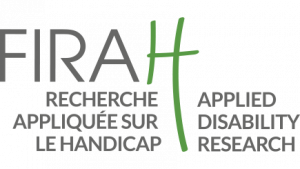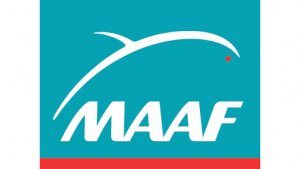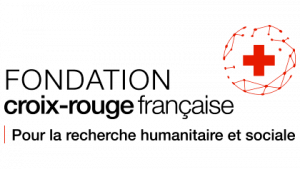FIRAH Call for Projects - Poverty & Disability
Poverty is a term used to describe a situation where a person, a group of persons, or a society that is unable to meet its basic needs and develop normally.
Poverty is a relative term because of the differences that can exist among people, across situations and environments. Poverty is defined as an absence or lacking sufficient resources, be they monetary or social. In December 1984 the European Council considers: people are said to be living in poverty if their income and resources (economic, social and cultural) are so inadequate as to preclude them from having a standard of living considered acceptable in the society in which they live.
Precarity often leads to poverty when it affects many areas of life, when it stretches out across time and endures, seriously compromising the likelihood of reclaiming rights and of being able to re-assume responsibility for oneself in the foreseeable future.
In February 1987, in a report presented on behalf of the French Economic and Social Council, Joseph Wresinski, defined precarity as: the absence of one or more forms of security, notably employment, which enable individuals and families to assume responsibility for their basic needs and to exercise their fundamental rights (...)”.
Disability have been proven to generate conditions of poverty; reciprocally, poverty is seen as a significant factor in the emergence and aggravation of disabling situations.
The comprehensive objectives of the current research programme are to underscore the correlations between disabling situation and precarity/poverty to identify the processes and activities implemented with a view to provide concrete solutions that improve conditions and quality of life for people.
This call for projects encompasses the situations and populations described below.
- Precarity and poverty in general, defined as partial or total lack of resources, regardless of the causes.
- All persons with disabilities:
- physical, sensory, intellectual and/or mental impairments , regardless of the cause of onset;
- children, adults or older persons; and
- all living situations – at home, in institutions, without a permanent address, or in prison...
Given the broad scope, persons submitting projects can focus their research on populations and situations in accordance with their objectives.
What applied research on disability encompasses
Applied research complies with the rules that apply to all forms of scientific research with regard to ethics, methodology, rigour, and evaluation. The goal of applied research is to provide solutions to the difficulties encountered daily by persons with disabilities and their families. Applied research must be construed as concrete collaboration, throughout the research process, between the persons with disabilities, their families, carers, professionals and researchers.
As in all other fields of research, findings should be disseminated through all possible channels to the research communities, particularly through open databases or scientific articles published in peer-reviewed journals.
Knowledge generated by research projects must be disseminated to the field stakeholders (persons with disabilities, their families, carers and professionals). It is essential to share information with non-scientific audiences for the purpose of ensuring that research findings are truly applied and improve the daily lives of the disabled persons and their families. Information must be presented using language and materials that are adapted to the targeted audiences.
The “field stakeholder” refers to persons with disabilities and their families, organisations representing them, human rights defence organisations (to encourage them to include disabled persons in their activities); service providers and other organisations working with disabled persons or who need to take into account the requirements of persons with disabilities, (e.g. architects, teachers, business firms, industry…), policymakers at the local, national and international levels.
The implementation support tools are findings and knowledge from applied research will be developed into products, services and content that meet the expectations and needs of persons with disabilities. Through proper adaptation they should help the field stakeholders improve their practices. These implementation support tools must include training and application tools, adapted written texts, videos, etc.
The six selection criteria applied in the Call for Projects
The six criteria that will be used to evaluate and select applied research project proposals are described below.
Everyone submitting a proposal should read them carefully and present projects that correspond to them. The criteria should serve to structure the letter of intent and the complete application.
The current document, particularly pages 3 to 6, will assist you when completing the Letter of Intent Application Form (available to download on the FIRAH website).
- Criterion no. 1 – Overall objective of the project
The overall objective of the research project should be to contribute to obtaining greater access to human rights for persons with disabilities, in compliance with the principles of the U.N. Convention on the Rights of Persons with Disabilities:
- Respect for inherent dignity, individual autonomy including the freedom to make one's own choices, and independence of persons;
- Non-discrimination;
- Full and effective participation and inclusion in society;
- Respect for difference and acceptance of persons with disabilities as part of human diversity and humanity;
- Equality of opportunity;
- Accessibility;
- Equality between men and women; and
- Respect for the evolving capacities of children with disabilities and respect for the right of children with disabilities to preserve their identities.
These principles will be used as the first frame to assess research project proposals.
- Criterion no. 2 – Originality and innovative nature of the project
It is necessary to include an initial review of the literature for the thematic of the research proposed.
Special attention will also be given to the taking into account of new approaches, evolutions in concepts and terminology related to disabilities.
If relevant, project proposals may include ways of transitioning from traditional ways of working to innovative and inclusive methods and should clearly highlight issues affecting resistance to change.
The originality of the research must also be demonstrated in the methods used to measure quality of life, quality of social participation, levels of satisfaction, self-determination and empowerment of the people involved.
The project’s particular context and any elements in the context that generate change will also be seen as sources of innovation.
- Criterion no. 3 – Presentation of research project leader and partners and their respective roles in the project
Priority will be given to participatory research projects that are able to demonstrate an organised and cohesive structure with strong links between field stakeholders (with special attention to persons with disabilities and their relatives, disability people organisations and professionals) and researchers.
The research project might involve associations for the rights of people with disabilities and persons living in extreme poverty.
The involvement of field organisations must be demonstrated through their intentions as well as their role in the planning, coordination and evaluation of the research project and in the dissemination of its findings.
Persons with disabilities, their families, and organisations that represent them must be seen as the ‘subject’ of the research and not only as the ‘object’ of the research. Priority will be given to projects that address problems identified by persons with disabilities and their families. Proof of this participatory approach must be provided by the description of their role in the different phases of the research.
The proposal must specify the names of the participating researchers, their areas of expertise, their respective role in the project, their previous involvement in relevant and funded research projects and any articles they have published that may be of importance to the proposal.
Research project leader and partners must demonstrate their ability to meet their goals by citing previous research outcomes and by describing their knowledge of current problems encountered by persons living with disabilities and their families.
Unless there are exceptional circumstances, which must be explained in the application file, the team of researchers must be comprised of at least one scientist working in an institutional or academic setting whose official responsibilities include a research.
- Criterion no. 4 – Methodology and expected outcomes
The research hypothesis or question should be clearly stated.
Clear and coherent scientific methodology is required. Expected results will be clearly announced. The methodology of data collection as well as those concerning data analysis will be presented.
The expected results will not be limited to description or ascertainment but will also provide concrete, operational recommendations, solutions and tools for driving change.
- Criterion no. 5 – Tools produced to disseminate and capitalise on knowledge generated by the research project (and methods for transferring these tools)
Special attention must be given to the means used to facilitate the transfer of the knowledge generated by research, quantitatively and qualitatively.
To be useful to academic and scientific circles, project outcomes must by described in articles published in open databases or in peer-reviewed scientific journals and presented at scientific gatherings.
In addition to scientific articles, the evaluation committee will pay particular attention to the production of other implementation support tools to be used by the stakeholders in the field. The term “implementation support tools” encompasses training tools, videos, practical written materials, computer applications, or any other means required by the target audience to appropriate the knowledge. To reach as large an audience as possible, those documents must be made available online, free of charge. These documents will have to be translated into French and English to ensure the widest possible dissemination.
Project leader must explain how field stakeholders will contribute to the creation of the research-derived material they will use.
Networks and other mechanisms that could have a lasting multiplier effect in circulating and optimising the outcomes must be identified for each target audience.
- Criterion no. 6 – Objectives, activities and resources must be coherently matched
Coherence will be required in the following areas:
- A adequacy of the project in terms of resources (human and material), completion time and funding requested.
- Job descriptions for everyone working on the project and the amount of time allocated to the project.
- The rationale for how financial resources are allocated to research activities, dissemination and practical applications, which includes the creation of implementation support tools for stakeholders in the field and English and French translations.
Features of this 2019 Call for Projects
This Call for Projects seeks to identify and fund applied research projects on the topic Disability and extreme poverty:
- Research Axis 1: Identify factors which can lead to extreme poverty for people with disabilities and their families, and possible actions which might prevent these triggering factors.
- Research Axis 2: Identify operational responses and methods to implemented for and with people with disabilities who are living in extreme poverty.
* * * * * * * *
Particular attention will be paid to projects which identify and assess existing methods (in different contexts : associations, public services, countries…) in order not to focus on a single experience, but to compare different ones, identify their strengths and weaknesses, detect possible improvements and suggest new practices. This in turn will enable a description of these experiences, and proposals for new methods of intervention which can be replicated.
Outside the skills brought by the project leaders, the partnership will be studied carefully, considering a balance between one or more proven research teams who will ensure the scientific quality of the project, and organizations whose intervention concerns the area of disability and extreme poverty. These research projects will be carried out scrupulously, taking into account the viewpoint of those directly and indirectly concerned and theirs family.
These projects should give rise to guidelines, operational tools, and training, adapted for people with disabilities and their families, for professionals and volunteer workers in the different services, and for policy-makers, to facilitate the implementation of concrete responses.
The research results should be free of access, and disseminated to the widest possible public, using new information and communication technologies, and teaching methods adapted to field stakeholders. They should also feature in scientific journals.
* * * * * * * *
This call for projects encompasses the situations and populations described below:
- Precarity and poverty in general, defined as partial or total lack of resources, regardless of the causes.
- All persons with disabilities:
- physical, sensory, intellectual and/or mental impairments , regardless of the cause of onset;
- children, adults or older persons; and
- all living situations – at home, in institutions, without a permanent address, or in prison...
Given the broad scope, persons submitting projects can focus their research on populations and situations in accordance with their objectives.
GEOGRAPHIC COVERAGE OF THE CALL FOR PROJECTS AND FINANCIAL SUPPORT
All organizations from countries within the EU and some associated countries can apply for this Call for Projects, as principal project leaders. For projects whose leader is not French, a minimum of two French organizations should be involved as partners: one organization representing the theme of disability and/or extreme poverty, and a certified research team. This involvement of French bodies will promote international cooperation, it should also allow for some of the field work to be carried out in France, and for all final deliverables to be produced in French, optimising their promotion into French speaking countries.
Proposals should have research fields in France. Comparative research with research fields in different countries will be appreciated.
Funding for selected projects will not exceed 100 000 euros per project. Projects having gathered all necessary funding by the beginning of 2019 will be preferred. These projects should be carried out over a maximum of two years.
Dates for this Call for Projects
- Call for Projects will be placed online: 7 january 2019
- Closing date for the submission of Letters of Intent: Midnight, 25 march 2019
- Announcement to project leaders of pre-selected and unselected Letters of Intent: 21 june 2019
- Closing date for the submission of completed dossiers: Midnight, 30 september 2019
- Announcement to project leaders of the selected and unselected dossiers: 9 december 2019
The FIRAH form must be used to draft the letter of intent and the complete dossiers. The form can be downloaded from www.firah.org under “Call for Projects” tab.
Applicants whose letters of intent are selected will be asked to submit a full project application. Recommendations for submitting the application may be sent to the project leader as guidance. How the recommendations are addressed will be a key factor in the final project selection process.
For more information and a clear understanding of the type of projects targeted by this Call for Projects, we advise you to consult our Applied Disability Research Resource Centre. You will be able to consult applied research projects funded by the FIRAH, as well as their results.
Methodological tools are also presented, with a view to promoting:
The Resource Centre database holds applied research from different sources, which may prove useful in the preparation of your project.


